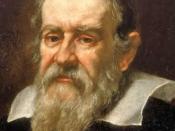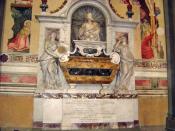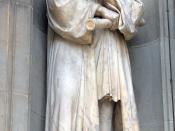Galileo Galilei (February 15, 1564 áV January 8, 1642), was an Italian physicist, astronomer, and philosopher who is closely associated with the scientific revolution. His achievements include improvements to the telescope, a variety of astronomical observations, the first law of motion, the second law of motion, and effective support for Copernicanism. He has been referred to as the "father of modern astronomy", as the "father of modern physics", and as "father of science". His experimental work is widely considered complementary to the writings of Francis Bacon in establishing the modern scientific method. (10) Here are some of his discoveries.
The age of the telescope began modestly with a patent application in 1608 for a three-powered spyglass, filed with the Dutch Republic by a spectacle maker from Middleburg, Hans Lipperhey. News of the device traveled quickly to other parts of Europe, and when Galileo heard about it in the spring of 1609, he built his own instrument, a three-powered spyglass with a convex objective lens and a concave ocular lens that he bought in a spectacle-makeráæs shop.
By the end of August, he presented an eight-powered telescope of his own devising to the Venetian senate. By November, Galileo had fashioned a twenty-powered telescope, and with it he undertook to observe the Moon,Galileo spotted mountains on the moon, satellites revolving around Jupiter, and the phases of Venus, and he marveled at the millions of stars packed together in the Milky Way. His observations confirmed that Copernicus had been right. (5)At this time in the seventeenth century, most people believed that the earth was at the center of the universe. Around the earth circled the sun, the moon and all the planets. While the planets moved against the background of stars, the stars themselves did not move. He made detailed drawings of...



Ok
I thought the essay was full of information. I thought that it should have been cited differently!
0 out of 0 people found this comment useful.